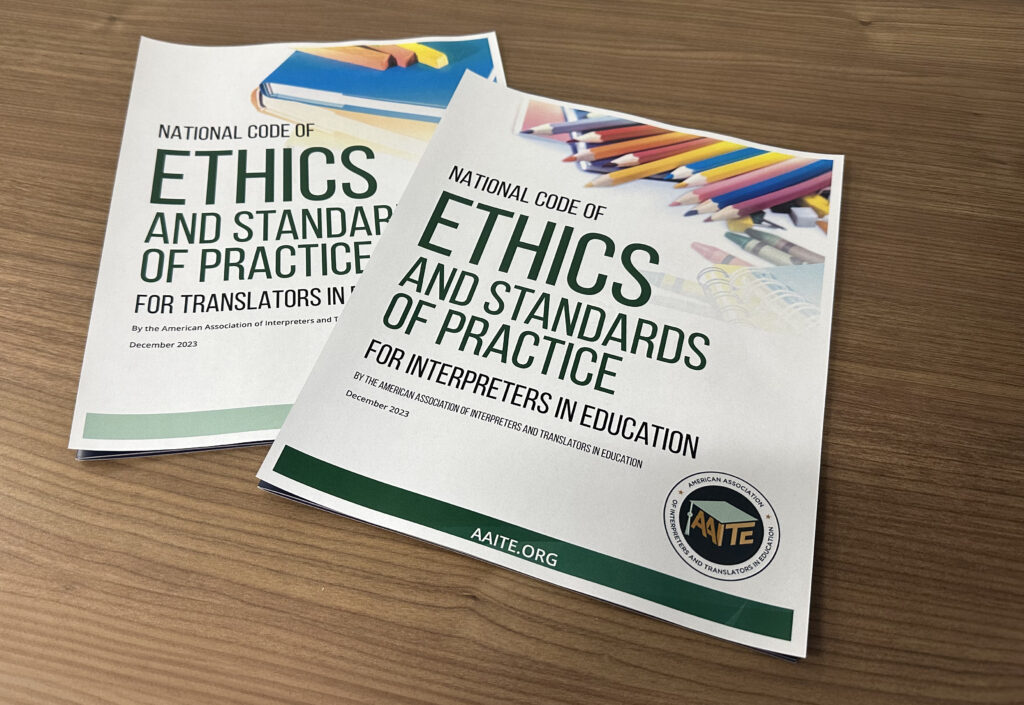
In a move that traces its origins back to Orange County, the American Association of Interpreters and Translators in Education has introduced a national code of ethics specifically designed for interpreters and translators who work in school-based settings
“This is a historical moment in the education field, and I am so proud that OCDE is part of this important milestone,” said Natalia Abarca, who leads the Orange County Department of Education’s Language Services team.
On Dec. 12, AAITE formally released its 41-page National Code of Ethics and Standards of Practice for Interpreters in Education and the National Code of Ethics and Standards of Practice for Translators in Education, which checks in at 33 pages.
Both documents cover foundational ethical principles, including accuracy, confidentiality, impartiality and professional conduct. The accompanying standards of practice offer valuable guidance on applying these ethical principles.
According to Abarca, the genesis of these codes was the third annual Interpreters and Translators Conference that was held in Irvine in 2019. Hosted by OCDE, the conference included national leaders working in K-12 interpreting and translation, including Katharine Allen, Giovanna Carriero-Contreras and Holly Silvestri, all of whom came together to talk about challenges, trends and best practices in educational interpreting.
“As a result of this meeting, there was a clear mandate to move forward with the goal of launching a formal effort to create a national code of ethics and standards of practice,” Abarca said.
Establishing expectations and norms
Abarca was part of the modest workgroup of 13 members that ultimately evolved to become the American Association of Interpreters and Translators in Education. The nonprofit organization was officially established in April 2021. It seeks to enhance the quality of the profession and foster a supportive community with resources, gatherings and other opportunities for professional growth.
It was AAITE’s Ethics and Standards Committee that took on the task of “providing unified criteria and establishing expectations and norms to guide and support the profession,” Abarca said.
Based on formal research, field-based surveys and contributions from professionals, both codes emphasize the importance of ethical considerations, responsible judgment and critical thinking for K-12 school-based interpreters and translators, who face challenges that are specific to their field.
Strengthening language services in OC
Abarca was among those who were invited by the committee and the AAITE Board of Directors to review the draft documents and provide feedback before their final publication.
“Some of the scenarios, experiences and best practices in the final drafts reflect those of Orange County students’ educational experiences and many around the country,” she said.
In recent years, OCDE has developed a robust professional network and countywide infrastructure to bolster language services. Under Abarca’s direction, the department has organized training sessions, helped standardize terminology, established an award program and hosted an annual conference. Orange County’s most recent Annual Interpreters and Translators Conference took place in late September.
For more information or to access the national code of ethics and standards of practice, visit the American Association of Interpreters and Translators in Education website.
